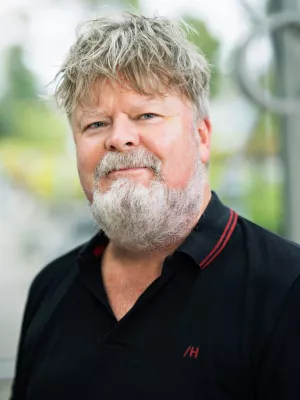
Johan Hultman
Professor

Unthinking sustainability through resourcification studies
Författare
Summary, in English
Resourcification is not another term for processes of economisation such as commodification and marketisation – even if each of these can be part of it. Resourcification makes explicit that things are not turned into resources by themselves, nor are they turned into resources randomly. Resources are literally produced, and resourcification as a concept and process intend to provide an understanding of how, where, when, and for whom this production happens, thus creating a platform for a socio-ecological critique of the current economic, social and environmental order. For example, resourcification intends to go beyond the observation that common-pool resources such as ecosystem services are increasingly being priced, privatised and enclosed; it aims at explaining why such a development is possible, how it happens, and who gets to lose or benefit from it.
Processes of resourcification are complex and poorly explored. A resource is commonly understood as having an a priori potential to become valuable. Thus, in sustainability research, focus has been on the sustainable management of resources. Yet, as for example valuation studies argue, nothing is valuable in and of itself in a social system. All things need to go through a situated process of valuation to gain value, highlighting the politics of value and of valuation. In the same way, things will only become resources if they go through a situated process of resourcification.
In this way, resourcification is to resource what valuation is to value: a way to shift attention away from essentialist queries about the nature of resources and towards a practical understanding of the social processes where things are turned into resources. We argue that the time is ripe to open up a field of resourcification studies to vitalise critical discourse on social-environmental interaction, thereby finding new approaches to analyse societies that seem genuinely unable to engage in profound change and renew themselves in order to meet the challenges of the Anthropocene.
We argue that the concept of resourcification has the potential to become a theoretical and methodological tool to ‘unthink’ sustainability by proposing a perspective to articulate new questions to investigate sustainability problems. In this contribution, we would like to present a number of preliminary statements to introduce a resourcification studies framework. They are not meant to be understood as a comprehensive resourcification program, but rather as a starting point for exploring the potential for resourcification studies to vitalize research towards the sustainable transformations of societies.
Avdelning/ar
- Institutionen för tjänstevetenskap
Publiceringsår
2020
Språk
Engelska
Dokumenttyp
Konferensbidrag: abstract
Ämne
- Business Administration
- Human Geography
- Social Sciences Interdisciplinary
Conference name
26th Annual International Sustainable Development Research Society Conference (ISDRS 2020)
Conference date
2020-07-15 - 2020-07-17
Conference place
Budapest, Hungary
Status
Inpress
Projekt
- Metodutveckling för att hantera kvalitativa värden i havsplanering.
- Resourcification - Theme, Pufendorf IAS

